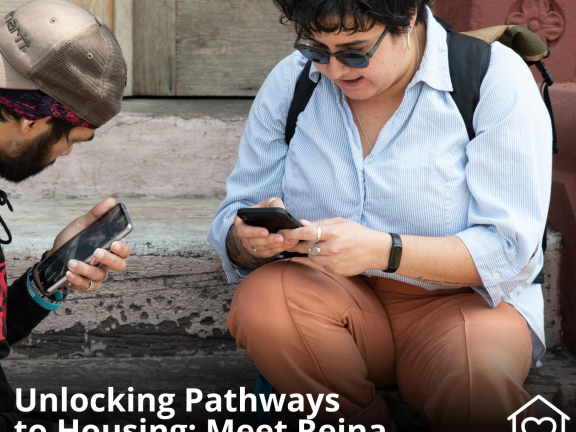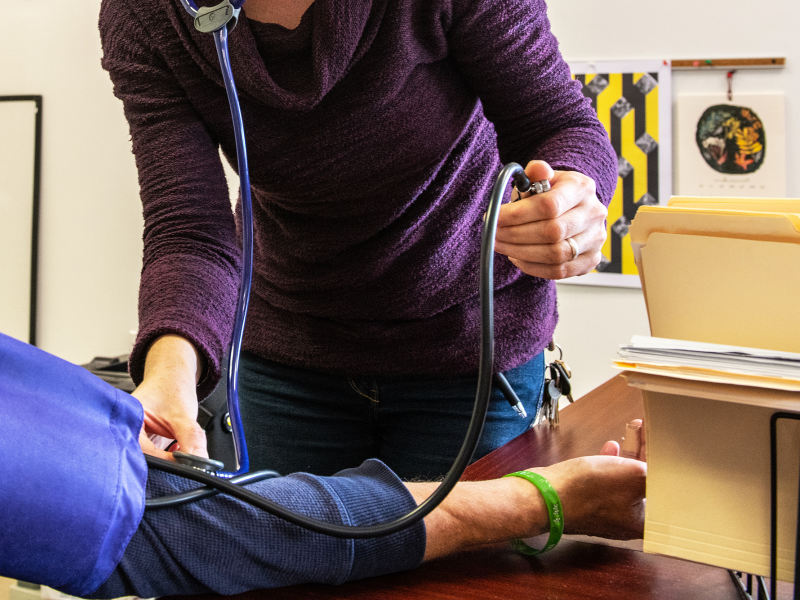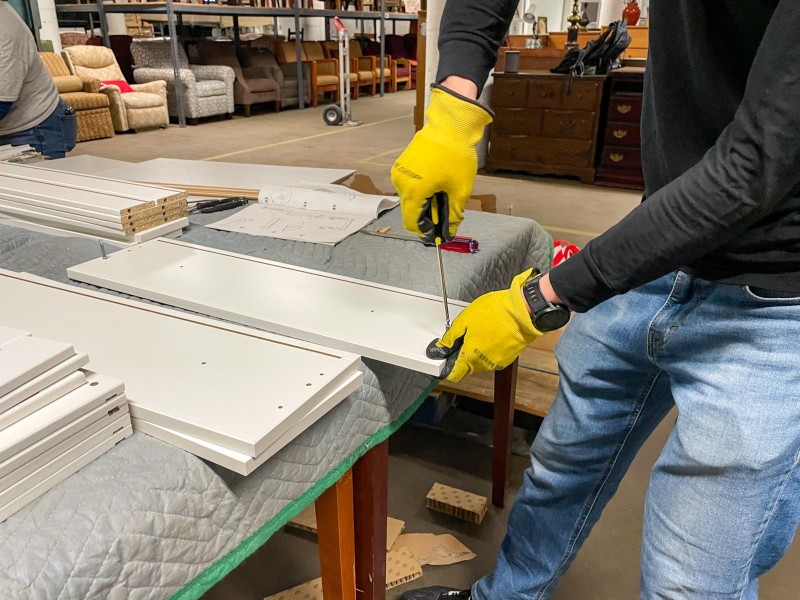Unlocking Pathways to Housing: Meet Reina

Reina Budesa joined Pathways two years ago as a Service Coordinator on Team 8 and was recently promoted to Assistant Team Leader. Since she joined Pathways, I’ve had the pleasure of sitting in on several morning rounds with Team 8.
Before I launch into my observations there, let me back up. Team 8 is one of our Housing First teams that supports individuals with opioid use disorder (OUD). The team has about 75 participants, all of whom have experienced chronic homelessness. When a participant is referred to us (through the City), it’s the Team’s job to conduct outreach. That means going out into the community to find the participant, introducing themselves, and explaining how our program works.
Outreach can last for varying amounts of time, depending on how ready the participant is to accept housing, how ready they are to start thinking about recovery, and how much they trust us. Most have tried housing or recovery programs in the past unsuccessfully or have built up a lot of resistance to help due to living unsheltered for long periods of time.
Once housed, the Team is responsible for supporting participants in pursuing independence and recovery – two things that are defined by the participant, not the Team. Sometimes that means helping participants to enter rehab, and sometimes it means educating participants on how to reduce harm to themselves and others while using substances. Sometimes, it’s going with a participant to the DMV to renew a license. Day to day, Team members could be supporting participants with a wide variety of different goals.
Each day for the Team starts with morning rounds, which is when they set aside time to quickly discuss each of the 75 participants on their case load, what’s going on that day, and anything that the team needs to be aware of. When I sit in on rounds, I’m constantly impressed at the variety of work the Team is doing with each participant, and how easily they can recall what’s going on with each participant during rounds.
Reina is usually one of the first to speak during rounds. She has excellent recall of where participants are in achieving their goals, which always impresses me. She’s also quick to throw out suggestions for how to better support participants when the team is problem solving, always thinking about what we could pursue or who from the team may be best suited to provide support.
When we checked in with Reina to ask why she does this work, she told us “I choose to do the work I do here at Pathways because I am able to advocate for individuals who have been looked over time and time again. As the daughter of a woman who suffered with an opioid disorder, I find it very meaningful to me to be able to provide supports to individuals in need. Working at Pathways allows me to build strong connections, enact direct change, and support individuals in reaching their goals.”
Her experience is part of what helps her to be especially successful at outreach. She’s a well-known figure in the community and is able to locate participants who purposely work to be unreachable, as well as those who prefer to spend time outdoors or with friends. Connecting with participants and making them feel comfortable isn’t always easy, and it seems to come naturally to Reina.
We also asked about her favorite memory here at Pathways, and she told us it took place at our annual Participant Picnic last summer. “I really loved spending time with participants from my team, and see them have a joyful outing, as so many individuals don’t get the opportunity to have fun with others very often. It was great to see people who were once street houseless become successful and reclaim their lives to the point that they were able to graduate from the PTH program. The Participant Picnic was a great way for our participants to meet each other, meet other staff members, and have an overall good time.”
Reina is one of dozens of case workers that work with our eight Teams here at Pathways, and they all have unique stories about why they do this work and what they enjoy the most. We’re glad to have spent some time with Reina this spring and hope to bring you more stories in the future. To close this out, we want to leave you with a final statement from Reina: “The main thing I want people to know about our work is that it can certainly be difficult and overwhelming at times, but to see a person be able to overcome all of the adversities and be in a stable place makes all the work we do worth it.”


